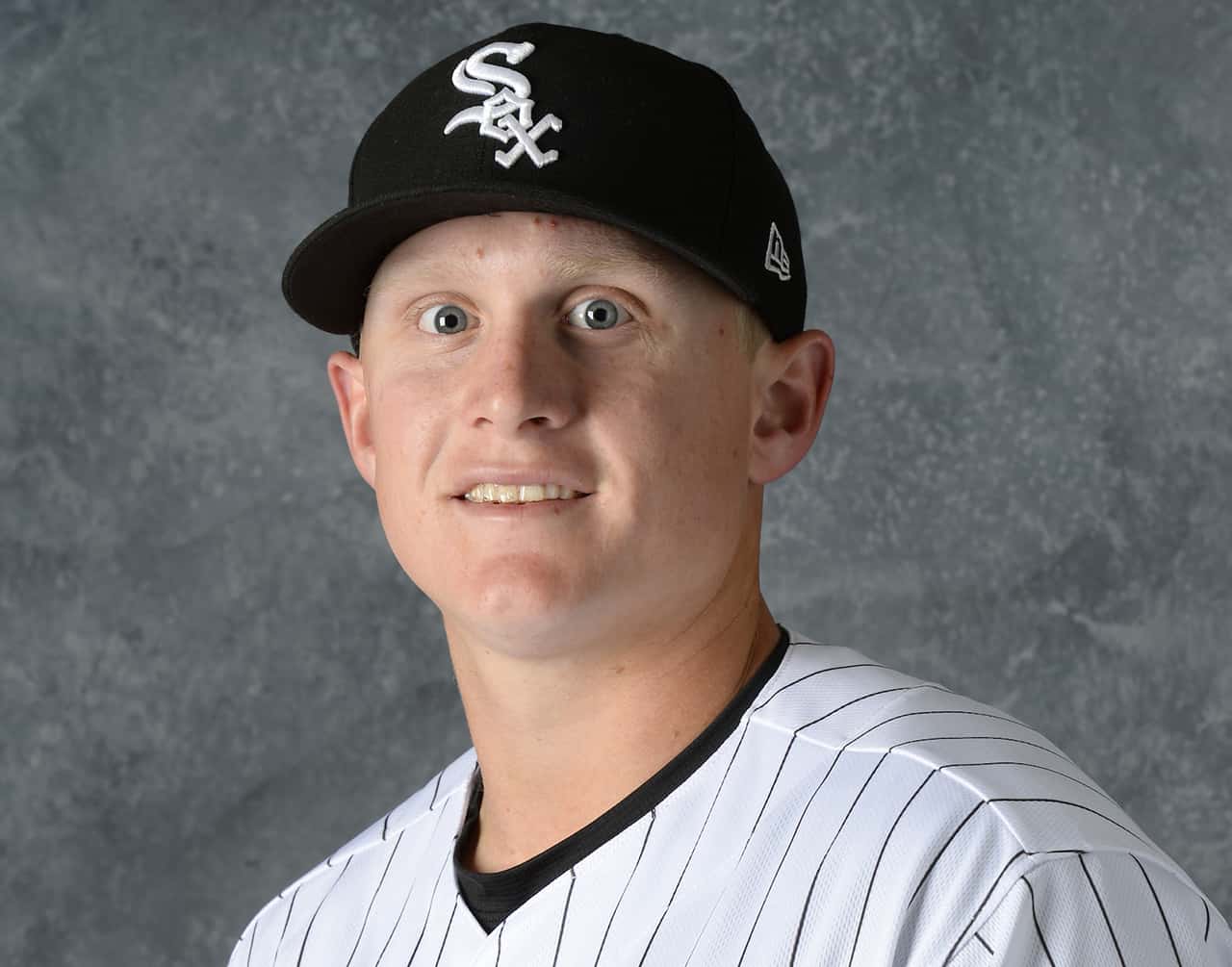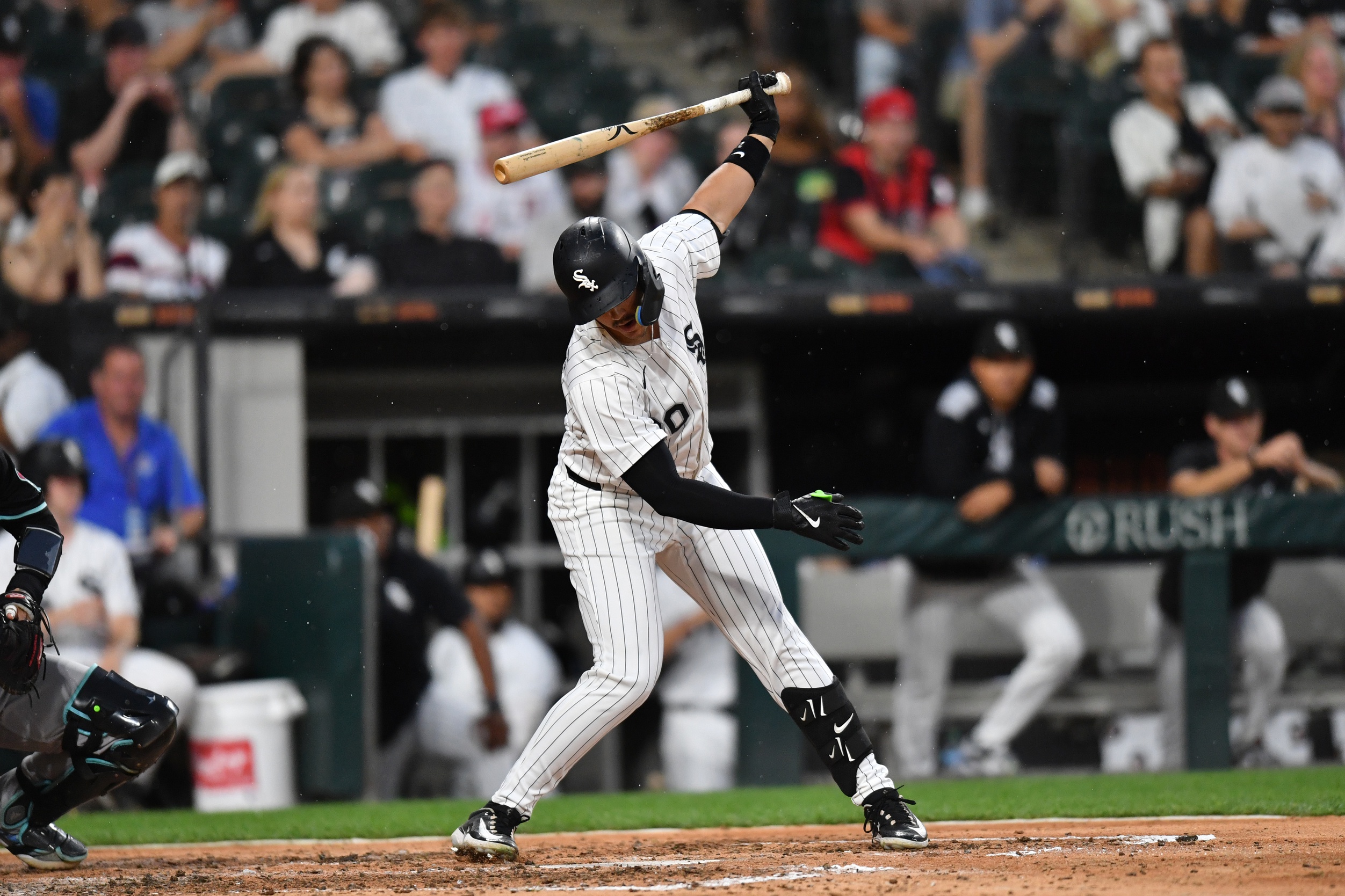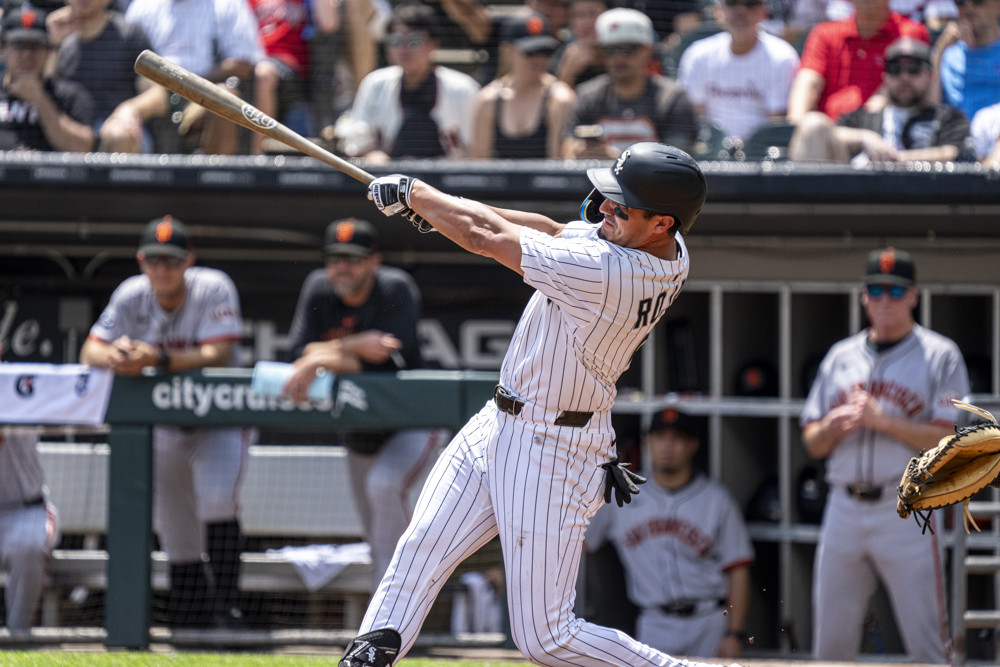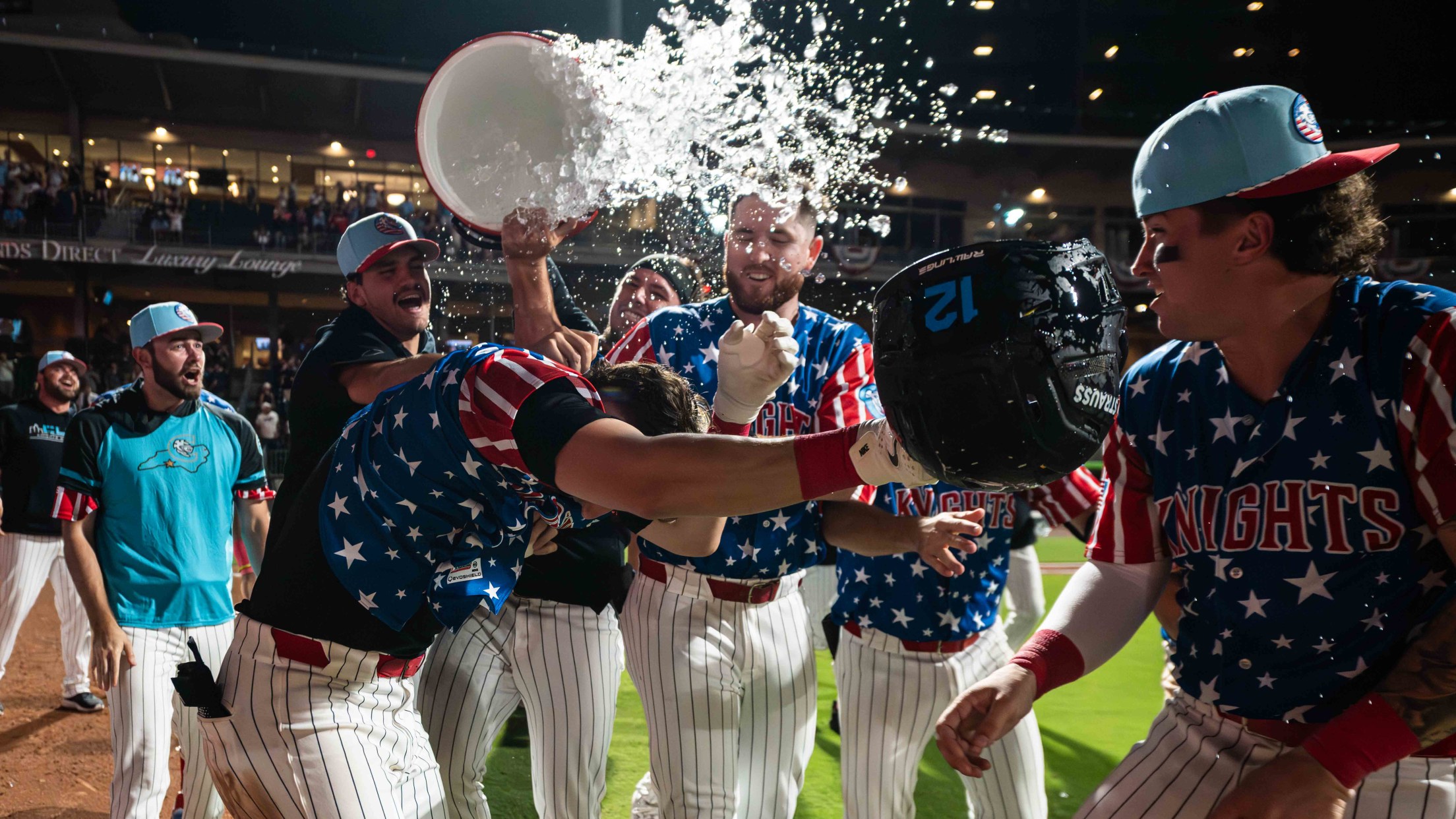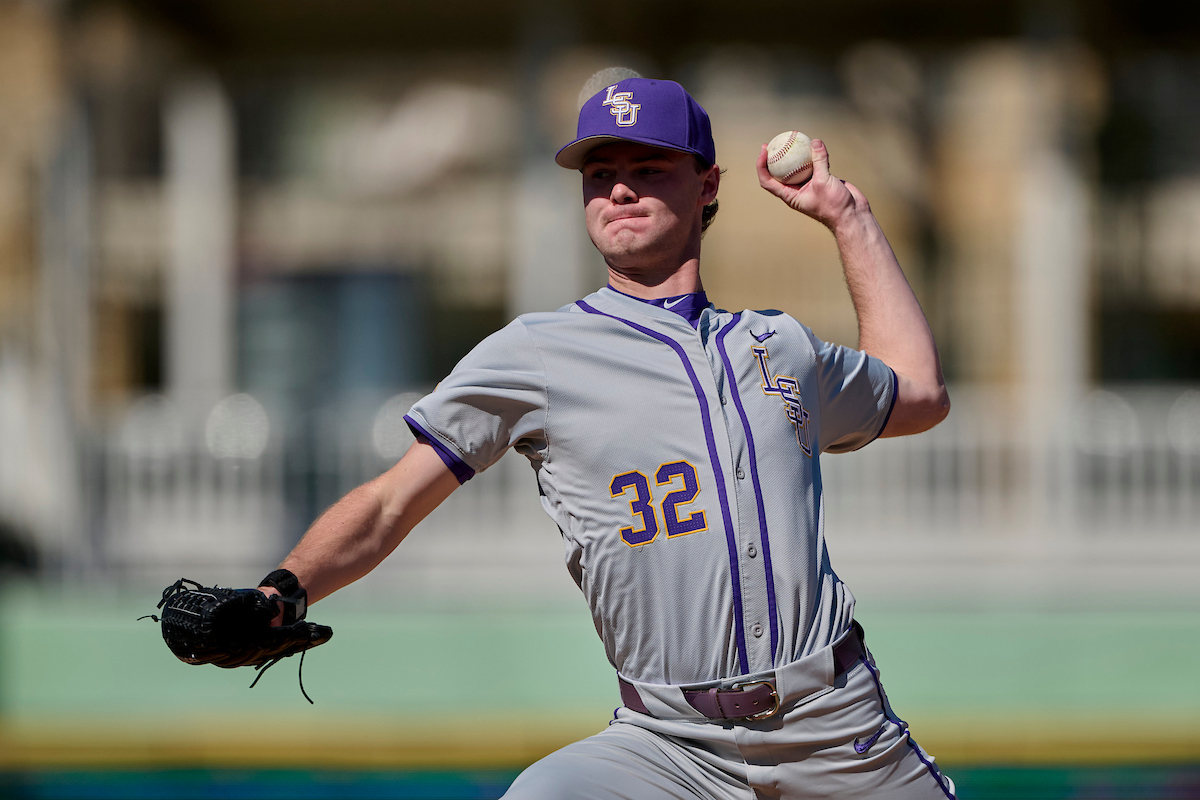It's only spring training, but Andrew Vaughn looks like he belongs. And because the White Sox didn't add a more proven bat to take up plate appearances at designated hitter, it appears they're bringing him along for Opening Day, regardless of immediate service time concerns.
So says Bob Nightengale, who couldn't get an on-the-record quote making Vaughn's spot official, but did quote his friends -- Kenny Williams and Tony La Russa -- by name to give the assertion some heft.
If spring training performance informed the decision, it's good information. Vaughn's hitting .289/.396/.489 with two homers, a triple, a double and seven walks to a respectable nine strikeouts over 53 plate appearances. There's no better candidate for the at-bats at the moment, so it's worth giving him a shot. The Sox can always send him down if it's not time.
Of course, the White Sox and Vaughn could still come to an agreement between now and Opening Day, making this moot. And of course, because it's Nightengale, he maximizes the flattery for the White Sox front office in the meantime.
The Chicago White Sox were hoping to lock up prized prospect Andrew Vaughn to a long-term contract before he makes his major-league debut.
Talks have cooled.
The affection and enthusiasm for the first baseman/DH has not.
The White Sox refuse to follow many other teams and play the service-time manipulation game by keeping Vaughn in the minors. Now barring injury, Vaughn is expected to be on their opening-day roster as the primary DH.
Indeed, the White Sox are avoiding the temptation to suppress the speed of Vaughn's earning potential, unlike those miserly White Sox, who did it with their previous three position-player prospects of note.
Get a load of how credulously Nightengale quotes Williams.
“We understand the service-time issue that plays here,’’ Williams said, “but our feeling is that when you’re ready to help the major-league club, there’s a spot for you. We’re trying to put the best team out there. We have proven that over and over again.
“I think there is a residual effect if you play those type of service-time games. As a former player, maybe I’m a little more sensitive to it than others. If you do that, the player and the agent don’t forget any time soon. Should you want to negotiate a contract down the line, or the guy becomes a free agent, I think that works against you.’’
Nightengale goes on to draw distinctions between's Vaughn situation and those of George Springer and Kris Bryant. He does not mention Luis Robert, Eloy Jiménez or Nick Madrigal, all White Sox prospects who were stiff-armed from the roster until it became economically advisable. The first two signed extensions, while Madrigal had to bide his time at the alternate training site until the Sox stopped pretending Cheslor Cuthbert was more useful.
Robert and Jiménez signed considerable extensions that no team has matched with their pre-MLB prospects, so perhaps all's well that ends well there. But, still. Come on.
PERTINENT: Andrew Vaughn's first home run could be a harbinger
* * * * * * * * *
There's an old, odd bit from the early years of "Late Night with Conan O'Brien" that has stuck with me, and maybe only me. I can't find any evidence of it online, so it's entirely possible that I have warped the original material into something completely different for my own purposes.
But here's how this guy remembers a 25-year-old gag he never saw a second time.
Conan had an interstitial two-minute segment where he'd take live reviews from the home audience over the phone, the sole purpose of which was to fill an awkward amount of time between guests. A guy calls in and says he's enjoying the show so much that he doesn't want to get up to get something to eat. So he comes up with a solution, enthusiastically telling Conan, "I'm going to peel my head like an orange!"
Then you hear a sound of ripping and tearing, followed by anguished screams.
"THERE'S NO FRUIT INSIDE! LEARN FROM ME! LEEEEAAAARN FROM MEEEEEEEE!"
I think of that quote a lot when an ostensibly terrible idea has no payoff. The White Sox have made me think of it plenty. I've somehow managed to avoid writing it, probably because of all the track-laying required to get everybody on the same page.
The idea of holding back prospects to get an extra year isn't as dumb as peeling one's head like an orange, because the team does gain that extra year. But we've argued that the benefits dry up shortly after that, and it can end up hurting more than it helps.
There are the relationship/reputational aspects that Williams refers to. There's also the idea that players who put themselves on healthy Super Two tracks make so much in that previously prized seventh year of team control that teams often try to get out from under paying that fourth arbitration-eligible salary. Nightengale mentions Bryant. He could have also mentioned Francisco Lindor with Cleveland, or Mookie Betts with the Red Sox.
Even if players sign extensions to rein in earnings for the first six-plus years of their career, "problems" remain. These same White Sox stopped short of beating their payroll record set 10 years ago because various Sox personnel have dutifully, somberly mentioned that even their cost-controlled players grow more expensive each year.
Whether a player is promoted on time or late, whether he signs an extension or bets on himself, it can be framed as financially disadvantageous for those so motivated, and the White Sox are often so motivated. The more examples of service-time manipulation I've seen, the more convinced I am that there's no fruit inside. By letting Vaughn earn an Opening Day assignment, it seems like the immediate stakes are finally high enough for the White Sox to admit it as well.
Or maybe Vaughn will sign an extension over the next week, and everybody can call themselves a hero.
But should the White Sox roster Vaughn without him signing anything, good for them! And good for us! We all get to avoid having the argument that's the worst thing about following baseball online, and we all get to watch the most meritorious White Sox lineup from Day One. It'd be a win-win, and the best way of racking up the wins that count.
